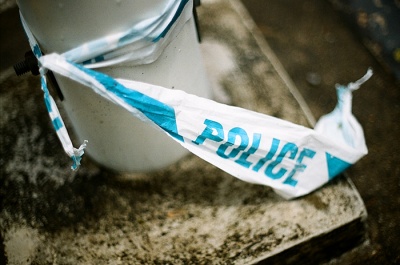Death of man found at recycling plant 'not suspicious'
Police officers investigating the discovery of a body at a Birmingham recycling site run by waste management firm Veolia, have concluded that the man’s death was ‘not suspicious’.

Officers from West Midlands Police were called to the site, based in Small Heath, Birmingham, at 10.12 am last Wednesday (29 April) after Veolia employees discovered the body of a man in a skip at the site.
Normal operations were suspended immediately, and the area was cordoned off to allow police to begin their investigation into the incident.
Circumstances surrounding the death still unknown
A post-mortem was conducted on 1 May, and although no detailed information has been released regarding the circumstances surrounding the death, it has been deemed ‘not suspicious’ by the Coroner’s Court.
Resource contacted the Coroner’s Office for further details, but was told that they could not comment at this time.
West Midlands Police has confirmed that there is ‘no longer a police investigation’ in place. However, Veolia has not yet issued a statement regarding the incident.
Further incidents
The discovery of the body follows on from two similar incidents last year. On 1 August 2014, Avon and Somerset Constabulary was called to a waste management site in Avonmouth run by Biffa, after workers discovered body parts at one of their units.
The deceased was identified as Matthew Symonds, aged 34, of ‘no fixed abode’ in Swindon. Again, as with the incident at Veolia, the death was treated as not suspicious.
Just the day before this (31 July), police officers from Ireland’s national police service, the Garda, were called to a recycling centre in Ballyfermot after the lower part of a human leg was found amidst the recycling waste. More remains were discovered later, including an upper part of a human leg and other bones.
Incidents such as these are not uncommon, and bodies are frequently found at recycling plants as a result of people sleeping in bins for shelter, who are then crushed when the bin is tipped. As such, research undertaken by the Chartered Institution of Wastes Management (CIWM), in partnership with Biffa and StreetLink, recommended that organisations involved in waste management operations undertake the following precautions:
- instruct crew to check inside bins;
- include people sleeping in bins in risk assessments;
- instruct crew to bang on bins;
- update reporting and recording procedures;
- provide bins that lock;
- instruct customers to lock bin;
- instruct crew to look for signs of homeless sleepers in the area;
- locate bins in a secure area;
- provide warning labels on bins and containers;
- locate bins in a lit area; and
- alert homeless services if they find someone sleeping rough.
Find out more about the risks of people sleeping in waste containers.








